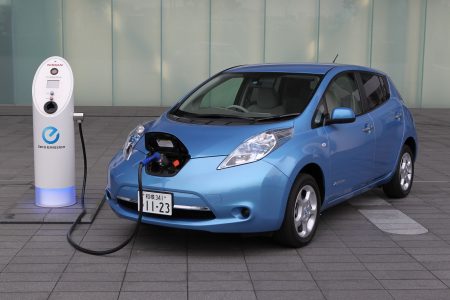August 17, 2016 – Research done at Massachusetts Institute of Technology indicates that the current electric vehicle (EV) fleet’s limited range should not be a concern when you look at the driving habits of the majority of Americans. A study headed up by Jessika Trancik, Assistant Professor, Engineering Systems Division of MIT, has found that current EVs could replace 87% of automobiles on American roads. And by 2020 if EV range increases based on battery technology improvements, 98% of automobiles by 2020.
Using the Nissan Leaf as the standard for their MIT study, an EV with a 119 kilometer (74 mile) range and leaving a 10% charge buffer in the battery, the researchers compared daily driving habits compiled from a 2009 National Household Travel Survey, accumulated GPS data from vehicle trips throughout the United States, air temperature readings (EVs lose range in colder weather), and assuming users would recharge their EVs nightly, they found a major impact on fuel consumption amounting to a 61% drop per year. Along with the need to use less gasoline and diesel collectively the United States would see a significant drop in carbon pollution. That’s because transportation is the second largest source of anthropogenic carbon emissions.
Even in cities with significant suburban sprawl like New York and Houston, the model indicated an 87% and 88% capability to switch to EVs without impacting consumers’ daily driving. In rural areas, surprisingly, the average daily commute could easily be handled with 81% of diesel and gasoline-powered cars being replace.
States Trancik, “it’s taking the approach of empowering people with information…changes can happen from the ground…..because private citizens can really make a difference today.”
The average EV right now is not a choice for long commutes or driving vacations.
Nor is it necessarily easy to install personal charging stations in homes.
Nor do we have an idea of what a volume of EVs recharging overnight would do to the existing power grid.
But what we do know from a study like this is the feasibility of moving to EVs faster than Americans and other nations are doing currently.
Today less than 1% of Americans drive an EV.
The following infographic says it all.


















I read this kind of argument again and again, but for me it sounds like wishful thinking. Of course, driving short distances is the 90% usecase of a car. Nevertheless I would never buy a car, which I cannot use for the remaining 10% usecases (e.g. visiting my parents, which live in the countyard).
There are EV solutions even for you to deal with the 10% use case. Extended range vehicles like the GM Volt and Tesla’s range of EVs can give you comparable capability to gas and diesel technology.
The study looked at normal daily driving habits and of course the EV’s range (Nissan Leaf) in its present iteration makes a compelling case. But it is not the answer for everyone. I too like to get on the highway and drive to places well beyond the range of any current EV or EV-hybrid. And if I were to look at such a vehicle I would want a re-energizing infrastructure as functional and available as today’s for fossil-fueled vehicles. That is not yet in place.
But we are within five years of seeing extended range battery technology and high-speed recharging station infrastructure capacity to alter the paradigm from fossil fuel to EV. At least the competitive field will be pretty level by then to give you a chance to look at the technology again.
Yes, the 5 year perspective sounds reasonable to me as well. If we achieve a 100% improvement of key battery KPIs, than an inflection point is reached. Recent progresses in battery technology make me optimistic. Personally I assume, that my next car will be anyhow electrified.
Sometimes I also wonder, why there is no simple but optimized mobile plug in generator in the size of a small suitcase (saw this as camping equipment working with gasoil), which I could plug into my electic car, only if I need an extended range. The rest of the time, it would be somewhere in my cellar.